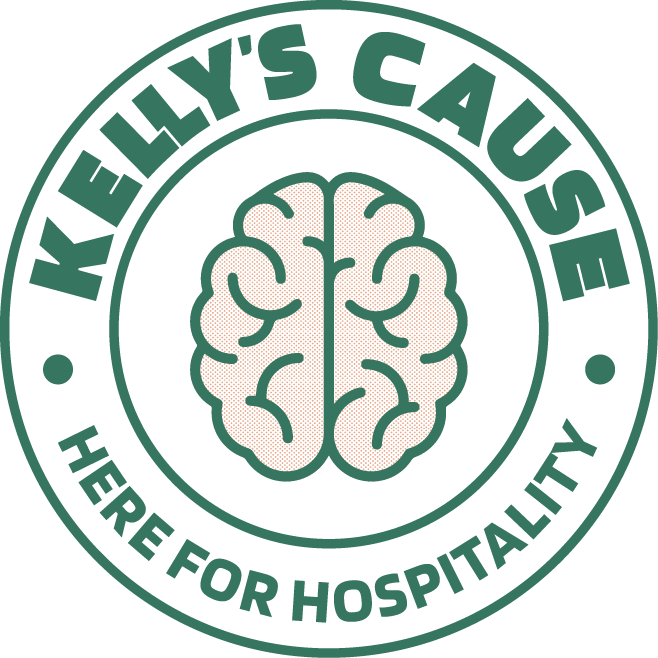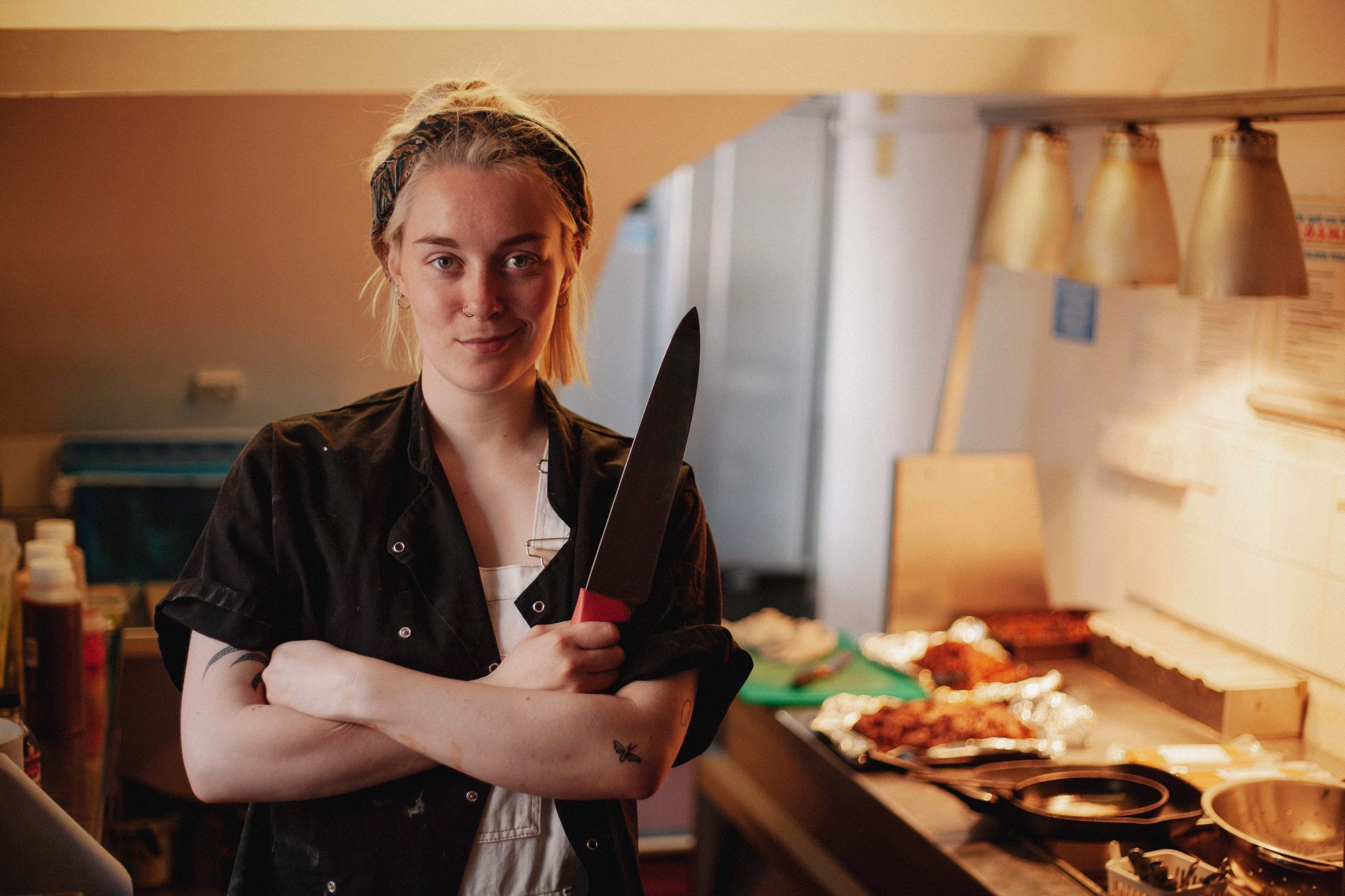Abuse, Autonomy and Capitalism in the Hospitality Industry
We recently got sucked into one of @fanaccountforgarlic ‘s instagram posts which was so brutally honest and raw that we got in touch and asked if they would like to be a guest writer for one of our news pieces. Fortunately they said yes!
Beth is a queer vegan chef, who started in kitchens as a kitchen porter in 2018 and is currently working as head chef at Super Nature in Hoxton. They trained as a mental health first aider with Kelly's Cause earlier this year. Their favourite dinner is anything pickled with pierogi, and their favourite restaurant is Alter in Aldgate East.
This is a Kelly’s Cause Spotlight Story. We aim to champion individuals in the industry speaking their truth and providing a platform for them to do so. As such, the views expressed are the author’s, not Kelly’s Cause. If you’d like to get in touch about sharing your story - please feel free to contact us.
Beth is stood in a kitchen wearing a black chefs jacket. Their arms are crossed, holding their chefs knife.
Like so many, my career as a chef is littered with stories demonstrating how deeply systemic abuse controls our industry. We betray ourselves - whether for the sake of the next promised promotion, career move, or just to make it through another 16 hour shift. It is normalised and unquestioned by all of us. So often, job offers and promotions are a position that needs covering that never gets offered formally. They can arrive in the form of a ‘this is what we have, just get on with it’ situation deceivingly presented as a great honour. Understaffed restaurants and huge financial stresses has created increasingly difficult conditions for employees, with younger, inexperienced chefs in senior roles, and no one left to mentor them, or advocate on their behalf. Personally, I have found that these environments ensured I have spent years in workplaces filled with needless competition against those who I should have been supporting. I was someone who willingly betrayed themselves to reinforce a hierarchy that was supposedly jeopardised by me asking for help. The whole experience left me feeling like my inability to conform to this system was the issue.
There is something uncomfortably jarring, realising managers routinely put me in positions I wasn’t ready for - with little to no support - and then praised me for working harder than I should have had to. It spiralled quickly. ‘No’ is not a word people expect when cheffing to the top in a giant rat race. I made huge sacrifices and was rewarded with the promise of management roles in new and bigger sites. I was told I was indispensable. I was being conditioned into an employer’s wet dream - always saying yes, never saying ‘I don’t want that’ - hoping to be valuable to companies who only ever cared about the labour I produce, and the money I earned for them.
It’s incredibly hard to unlearn the harmful beliefs I was taught about how being a chef should look and feel. Those same managers that imparted this toxic perspective on me are undoubtedly abusing a fresh batch of chefs presently, continuing the cycle. I have yet to find a business in London that is truly safe from the toxic culture hospitality is notorious for - either clear breaches of employment law we shrug off, or that more insidiously evil tone that leaves you feeling inadequate for simply adhering to your contracted hours. The uttering of ‘no’ never goes down well.
The subtle, gross framing of your job equalling your life was not created by us, it was imparted upon us. It is easy to place emphasis on the individual; the hospitality business is deeply entrenched in stoic, hierarchical, and capitalistic structures. Individuals and unions setting boundaries - saying no to shifts, advocating for mental health first aid training, scheduled breaks, less brutal hours, better pay, staff food - are fantastic steps, albeit resisted by many. The framework of capitalism will always suggest I would be better at my job if I did more hours and sacrificed more. Our industry is propped up by unpaid labour - disguised as learning opportunities, stages, and ‘essential tasks’ suspiciously never essential enough to be budgeted for. Hospitality may be better intentioned today than it was twenty years ago, but capitalism is still everywhere, and individual action is not a replacement for systemic change.
Individuals, including myself, have a part to play, but our role will never be as important as the people with deep pockets who are running this industry. It is hard to push forward with a safe working utopia in mind while you are continually confronted by the reality of these environments. It is hard to hold yourself to higher standards than the people around you have set. It is hard to feel duplicitous in making a bad business plan functional. It is hard when your employers are essentially paying you to uphold an approach you fundamentally disagree with. We have to make peace with the fact that we can critique a system, while we are forced to exist within it. My experiences were a symptom of the wider industry issues, not the cause. A system should be built to support people - one that doesn’t is a failure. Our current system supports none of us.
Here is to the utopia we hope for: here’s to valuing your team enough to invest in them, long term. Here’s to designing our workspaces and your business plans around your teams being people, rather than ‘staff’. Here’s to trying to say ‘no’ or ‘I don’t want that for me’.
Here’s to honesty, boundaries, and trust.
Follow Beth on Instagram @fanaccountforgarlic.
Read our previous Kelly’s Cause Spotlight Story here.

